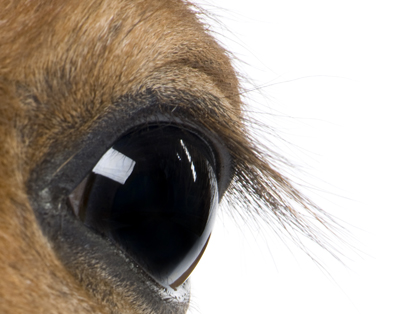Horse Side Vet Guide®, Unique Mobile Veterinary Application For Horse Owners & Equine Professionals
December 11, 2013 Comments Off on Horse Side Vet Guide®, Unique Mobile Veterinary Application For Horse Owners & Equine Professionals
Initially launched in August of this year for the iPhone, HSVG is designed to help caretakers of horses (and other equines) make better health-care decisions for their horses. In just four months, HSVG has been downloaded in more than 26 countries, and it has been ranked as a Top 25 reference app in iTunes in 12 countries.
Continue reading …The Equine Industry: Are We Making Progress for the Future or Just Following the Footsteps of the Past?
December 9, 2013 Comments Off on The Equine Industry: Are We Making Progress for the Future or Just Following the Footsteps of the Past?
This January, Equine Guelph will be providing students with the opportunity to re-examine their knowledge regarding equine welfare with its online course, The Equine Industry.
Continue reading …Pet Talk: Eye Injuries in Horses—Something to Look Out For
December 6, 2013 Comments Off on Pet Talk: Eye Injuries in Horses—Something to Look Out For
“There are several features of the equine eye that makes it quite vulnerable to injury and anatomical features of the equine skull that contribute to this increased risk for injury,” said Dr. Leslie Easterwood
Continue reading …Could Antibiotic Resistance be a Threat For Our Pets?
December 5, 2013 Comments Off on Could Antibiotic Resistance be a Threat For Our Pets?
Spokesperson for the AVA, Dr David Neck, said that pet owners need to make sure they are responsible when their pet is sick and prescribed antibiotics.
Continue reading …Limiting Roughage Access May Limit Fertility
December 4, 2013 Comments Off on Limiting Roughage Access May Limit Fertility
Ensuring that mares have access to roughage throughout the day and night has beneficial effects on reproductive efficacy according to a recent report.
Continue reading …UC Davis Equine Surgeons Help Return Barrel Racer to Winning Ways
December 3, 2013 Comments Off on UC Davis Equine Surgeons Help Return Barrel Racer to Winning Ways
Caddy (Spook DeVille), an 11-year-old Quarter Horse gelding, was at the top of his game in 2012. He captured several racing titles, including the Western Classic Grand Champion barrel race title, and set a new Western Classic arena record for the fastest time. A tragic accident befell Caddy, though, in the spring of 2013.
Continue reading …Dr. Patricia Sertich to Discuss Gender: A Factor in Your Mare’s Performance
December 2, 2013 Comments Off on Dr. Patricia Sertich to Discuss Gender: A Factor in Your Mare’s Performance
Dr. Sertich will explain why it is important to understand the normal anatomy, physiology, and behavior of the mare to make sound decisions about housing and management – key factors in balancing the mare’s needs.
Continue reading …Perfect Products Announces ProtEQtor Immune Support Formula For Your Competitive Equine
November 27, 2013 Comments Off on Perfect Products Announces ProtEQtor Immune Support Formula For Your Competitive Equine
ProtEQtor is a cutting edge formula that provides optimum immune support for performance horses while shipping and showing.
Continue reading …Important Changes to Both USEF and FEI Drugs and Medications Rules Will Affect 2014 Competition Year
November 27, 2013 Comments Off on Important Changes to Both USEF and FEI Drugs and Medications Rules Will Affect 2014 Competition Year
A new category of rules referred to as Prohibited Practices has been introduced to the USEF Rule Book which will take effect December 1, 2013. The first rule to be adopted in this category is commonly referred to as the “12 Hour Rule.”
Continue reading …$32 Million State-of-the-Art Animal Care Facility Planned at JFK Airport
November 27, 2013 Comments Off on $32 Million State-of-the-Art Animal Care Facility Planned at JFK Airport
By early 2015, horses and other animals will enjoy a new $32 million state-of-the-art facility at New York’s John F. Kennedy (JFK) International Airport.
Continue reading …







